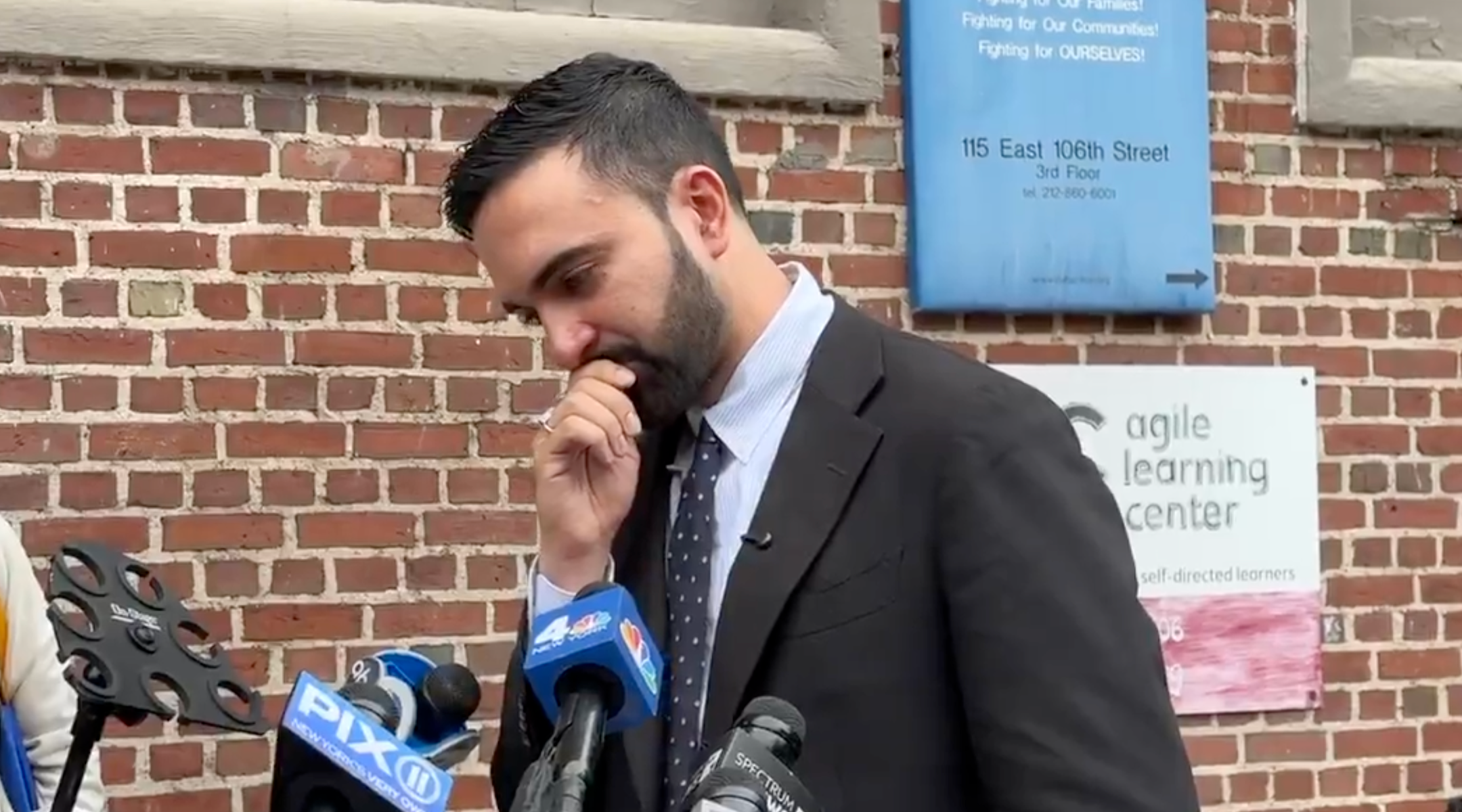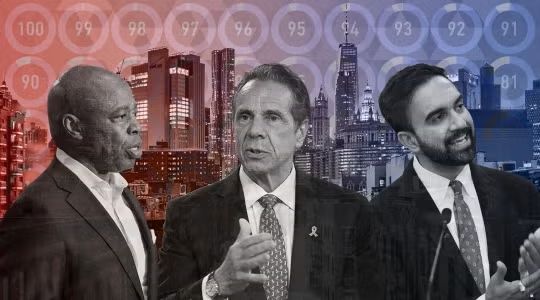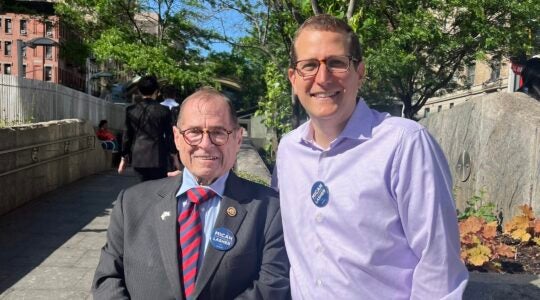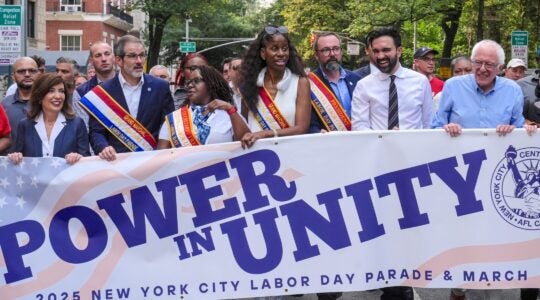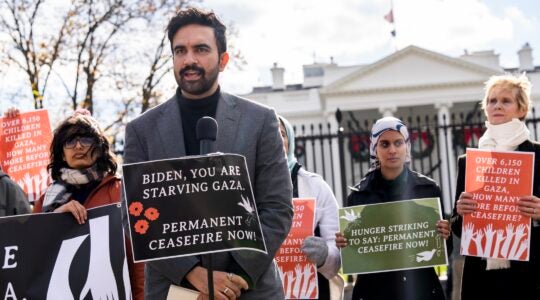The U.S. Holocaust Memorial Museum appeared to condemn a statement made by NYC mayoral candidate Zohran Mamdani in which he defended the phrase “Globalize the intifada,” saying the word “intifada” had been used in translations by the museum.
Mamdani, meanwhile, responded to the accusations of antisemitism he has received since the statement in a tearful address Wednesday, telling reporters “it pains me to be called an antisemite.”
While speaking on “The Bulwark” Tuesday, Mamdani defended the phrase “globalize the intifada,” which has been used by pro-Palestinian protesters and seen by many as a call for violence against Jews, telling the hosts that the phrase was often misunderstood.
“I think what’s difficult also is that the very word has been used by the Holocaust Museum when translating the Warsaw Ghetto Uprising into Arabic, because it’s a word that means struggle,” said Mamdani, who has a long record of pro-Palestinian activism. “And as a Muslim man who grew up post-9/11, I’m all too familiar in the way in which Arabic words can be twisted, can be distorted, can be used to justify any kind of meaning.”
In a post on X Wednesday, the U.S. Holocaust Memorial Museum decried the comparison of the Warsaw Ghetto Uprising, a major Jewish uprising against the Nazis in 1943, with the phrase, though it did not explicitly mention Mamdani.
“Exploiting the Museum and the Warsaw Ghetto Uprising to sanitize ‘globalize the intifada’ is outrageous and especially offensive to survivors,” the post read. “Since 1987 Jews have been attacked and murdered under its banner. All leaders must condemn its use and the abuse of history.”
Mamdani’s statements appeared to reference an Arabic translation of the Warsaw Ghetto Uprising that was used on the museum’s website up until May 2024, according to archived web pages found on the WayBack Machine.
Until that time, the Arabic translation on the website’s page for the Warsaw Ghetto Uprising translated “uprising” to “انتفاضة,” the Arabic word for intifada. It was then changed to “مقاومة,” or “muqawama,” the Arabic word for “resistance.”
The U.S. Holocaust Memorial Museum did not immediately respond to a request for comment about the translation change.
Mamdani addressed the accusations of antisemitism that he has faced following his statements in an emotional press conference Wednesday morning in Harlem where he was repeatedly asked to respond to the accusations by reporters.
“It pains me to be called an antisemite. It pains me to be painted as if I am somehow in opposition to the very Jewish New Yorkers that I know and love and that are such a key part of the city,” Mamdani said.
Mamdani then went on to tell reporters about threats to his life he has faced as the first Muslim mayoral candidate, becoming visibly emotional and pausing his statements to compose himself before continuing.
“I get messages that say the only good Muslim is a dead Muslim. I get threats on my life,” said Mamdani, who then paused to compose himself as his voice broke. “On the people that I love, and I try not to talk about it, because the function of racism, as Toni Morrison said, is distraction.”
“The thing that’s made me proudest in this campaign is that the strength of our movement is built on our ability to have built something across Jewish and Muslim workers, across New Yorkers of all faiths and all backgrounds and all boroughs,” he said. “And antisemitism is such a real issue in the city, and it has been hard to see it weaponized by candidates who do not seem to have any sincere interest in tackling but rather in using it as a pretext to make political points.”
Some New York Jewish leaders have decried Mamdani’s statements, calling on him to apologize for equating the word “intifada” with the Warsaw Ghetto Uprising.
The UJA-Federation of New York said in a post on Instagram that “any attempt to sanitize the phrase is outrageous.”
“Let’s be clear: ‘Globalize the intifada’ is not a call for justice. It is a call for antisemitic violence. Here in New York, it is linked to some of the most dangerous attacks and threats against Jewish students,” the post read.
“Any attempt to sanitize the phrase is outrageous and especially offensive to Holocaust survivors who understand better than most what happens when we ignore the weaponization of rhetoric to validate violence. All leaders, at a moment of deepening danger for the Jewish community, must condemn both this language and the abuse of history it represents,” the post continued.
Rabbi Marc Schneier, the senior rabbi of The Hampton Synagogue, also called on Mamdani to apologize to New York City’s Jewish community for his defense of the phrase.
“Zohran Mamdani must immediately apologize to New York City’s Jewish community for his offensive claim, in which he equates ‘intifada’ with the Warsaw Ghetto Uprising,” said Schneier in a statement.
“His language is a direct insult to survivors and the hundreds of thousands of Jewish New Yorkers who are the relatives of loved ones lost in the Shoah. His moral laryngitis in the face of Iranian attacks on Israeli civilians further exposes his indifference to Jewish suffering and disqualifies him from any leadership role in this city,” the statement continued.
In an interview on MSNBC’s Morning Joe Wednesday morning, Elisha Wiesel, the chairman of the Elie Wiesel Foundation and son of Holocaust survivor Elie Wiesel, also decried Mamdani’s defense of the phrase.
“American Jews are already in danger. We have a mayoral candidate on the ballot who refuses to condemn the phrase, you know, globalize the Intifada, which is code switching for kill the Jews. So you have Zohran Mamdani running for office. The war is here. It’s not something fictional and far away,” said Wiesel.
Wiesel also called on New Yorkers to block Mamdani from being elected in a post on X.
Mamdani is currently polling second in an 11-way contest for the Democratic mayoral primary on Tuesday. The frontrunner, former Gov. Andrew Cuomo, also decried his comments, saying in a post on X Wednesday that Mamdani’s statement is “not only wrong — it is dangerous.”
“At a time when we are seeing antisemitism on the rise and in fact witnessing once again violence against Jews resulting in their deaths in Washington DC or their burning in Denver – we know all too well that words matter. They fuel hate. They fuel murder,” the post read.
“As the US Holocaust Museum so aptly said, all leaders or those running for office must condemn the use of this battle cry. There are no two sides here,” the post continued. “There is nothing complicated about what this means. I call on all candidates running for mayor to join together to denounce Mr. Mamdani’s comments because hate has no place in New York.”
JTA has documented Jewish history in real-time for over a century. Keep our journalism strong by joining us in supporting independent, award-winning reporting.
